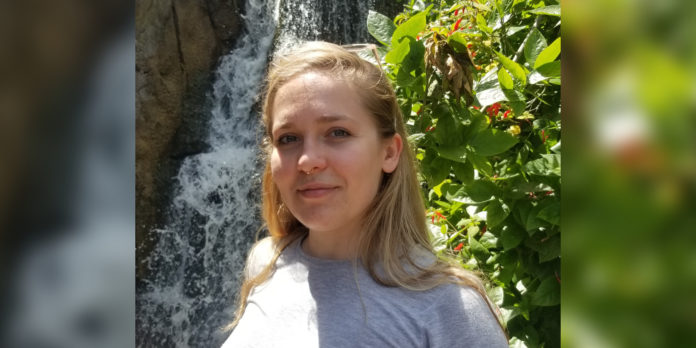One Mercer University alumna is using her affinity for both science and art to engage a general audience with her Ph.D.-level research.
Kaydren Orcutt, a 2017 College of Liberal Arts and Sciences graduate who majored in chemistry and Spanish, is in her fourth year of pursuing a doctorate in chemistry at the University of California, Berkeley.
Orcutt’s article, “Why you should stay single: The scientific benefits of using a single photon,” was recently published on the UC Berkeley website. The work explains plants’ abilities to ingest single molecules of light rather than consuming it all at once. The idea came about during one of her quarantine breaks.
“I wanted to take something that was really complicated in terms of the science involved, like base fields, quantum physics and photosynthesis, and try to find a way to communicate that as effectively as possible, with a little bit of humor, as well,” Orcutt said.
Orcutt began the writing process with a few rough-sketched comics to illustrate the single protons that plants intake one by one. The illustrations she created, which include a deconstructed cheeseburger and a depiction of the process of photosynthesis, make the article more palatable for both highly educated researchers and general audiences alike.
“I wanted to use some sort of visual storytelling to figure out what was going on, not just with complicated words, but for visual learners, as well,” Orcutt said. “I think it’s a bit easier when you break things down into picture metaphors for overall comprehension of a concept.”
At UC Berkeley, Orcutt works as a physical chemistry experimentalist studying physical phenomena, data analysis and troubleshooting many undetermined apparatuses to see if they will operate within various experiments.
“It’s very interesting to me because it is a different experience than when I was in undergrad. Although I did research at Mercer, a lot of it was the learning part,” Orcutt said. “Whereas here, it’s pretty much one sample and developing weird techniques to understand it.”
Orcutt’s passion for exploring the unknown through scientific means and artistic expression are reflected in her work, which is driven by her love for educating others.
“I like being excited by what I’m doing and studying new and interesting things, even if they’re going to be difficult,” Orcutt said. “I also really love my art on the side for fun, and I wanted to combine the two.”
Orcutt believes that to be a good scientist, she must be able to communicate her findings to the public effectively while not being stereotypically condescending about the knowledge many scientists obtain.
“It makes it easier if you can share your information simply enough that everyone gets it. I want to be able to communicate to as many people as possible because science has taken a negative turn of public opinion in the past few years,” Orcutt said. “And it doesn’t help anybody for a scientist to just remain snooty, hunched in our darkrooms over a microscope.”
Orcutt also enjoys scientific exploration because it gives her an outlet for further discovery of countless topics.
“I love science and I like cool things. Science communication is also interesting because you don’t always write about your own work,” Orcutt said, referencing an article she wrote recently for the journal Device and Materials Engineering.
Orcutt attributes Mercer to her success in her endeavors as a budding scientist. She specifically notes the faculty as a significant contributor to her favorable outcome in her career field.
“I would not be able to get to where I am without Mercer,” Orcutt said. “I don’t think I would have been able to do well in terms of sustaining my self-worth through graduate school without the pretty great support system I had from my professors.”










